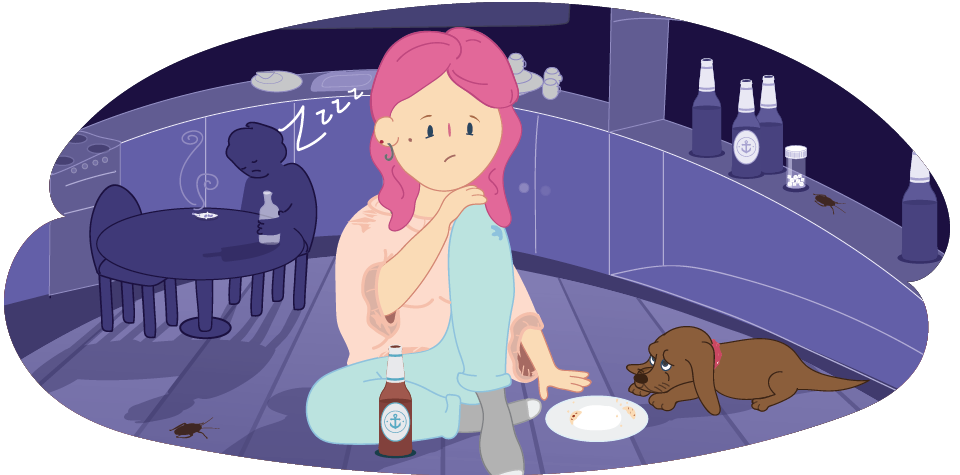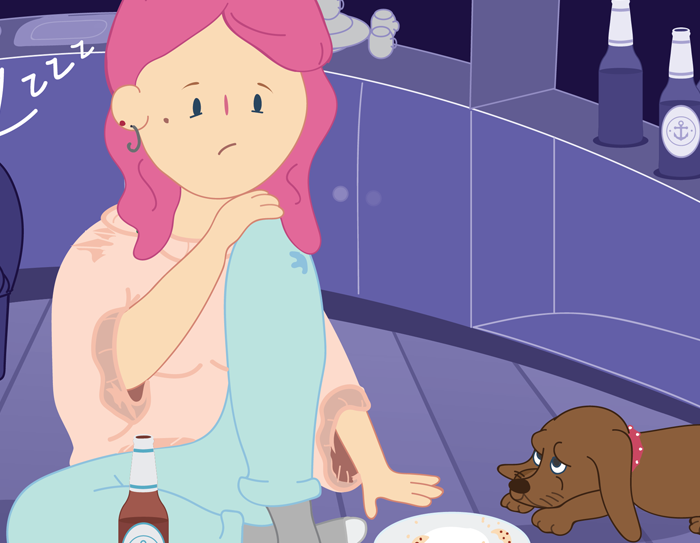Understanding child neglect
Neglect happens when a parent or carer isn’t giving you everything you need to grow up happy and healthy.
Content Warning: this article contains violence and trauma related content that may be triggering or distressing.

What is neglect?
When we don’t have our basic needs met by the people who are supposed to look after us it’s called neglect.
- Some parents or carers have trouble giving their kids the basics they need to be safe and grow up happy and healthy.
- 'Good enough’ parenting is defined by things such as your culture, the community you live in and the laws around child protection in your country.
- Neglect can happen when one or both parents are affected by things which may or may not be within their control eg. addiction, mental illness or poverty
Types of neglect
Child neglect might occur in any or all of these areas:
What’s the opposite of neglect?
We need to be supported in different areas of our life when growing up. This is usually the job of our parent or caregiver. But it may also include our extended family, school and community.
Physical – shelter, food, clothing, hygiene, sleep
Security – consistent care, appropriate boundaries
Affection – cuddles, kisses, holding, tenderness, patience
Stimulation – encouragement, praise, play, games
Guidance – teaching life lessons, instilling values
Independence – balancing protection and exploring
Responsibility – appropriate chores, involved in decisions
Approval – understanding and acceptance
Neglect usually happens over time and is rarely a one-off incident. As it builds up over time it can become normalised by the parent and young person.
What are the signs of neglect?
Here are some signs that may indicate neglect:
Extremely dirty, unwashed or have body odour
May steal or beg for food, clothing or money
Inadequate, worn out or dirty clothing
Living in unhygienic or unsafe conditions
Often hungry, without food or malnourished
Untreated injuries, illness or physical conditions
Is home alone for long periods without supervision
Parent/carer is abusing alcohol or other substances
Parent/carer may appear indifferent toward to the child
Is frequently absent from school or doesn’t attend at all
If you are being neglected…
You might feel guilty, sad, scared or hurt. But just remember that:
There are people you can talk to who can help
Here’s a list of some people you could try talking to. Remember, if at first you don’t get help, keep trying until you find somebody who will help you.
Kids Helpline - 1800 55 1800
1800 RESPECT - 1800 737 732
An older relative or friend
A teacher or school principal
Doctor or nurse
Youth worker
School counsellor
Child Protection
Check these out too:
Physical violence and abuse
Violence is never okay. If you or someone you know is experiencing ...
READ MEUnderstanding emotional abuse
When an adult is hurting you with their words or actions over ...
READ MEUnderstanding sexual abuse
Sexual abuse is never ok. In this article we focus on what ...
READ MEWhat is abuse
Abuse takes many forms and there isn’t one single way that ...
READ METalking helps! We’re here for you.
No problem is too big or too small.
We're here 24 hours a day, 7 days a week






